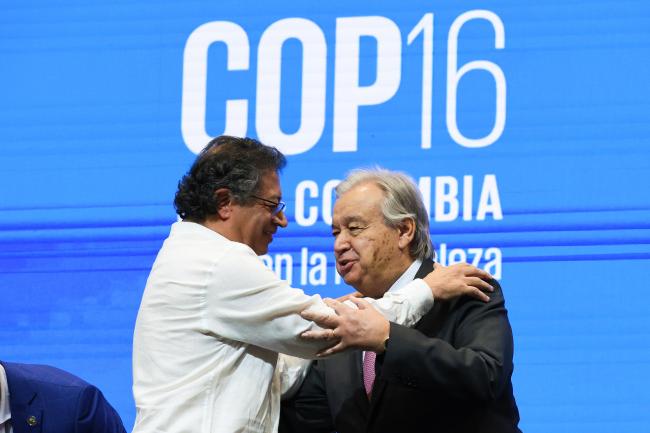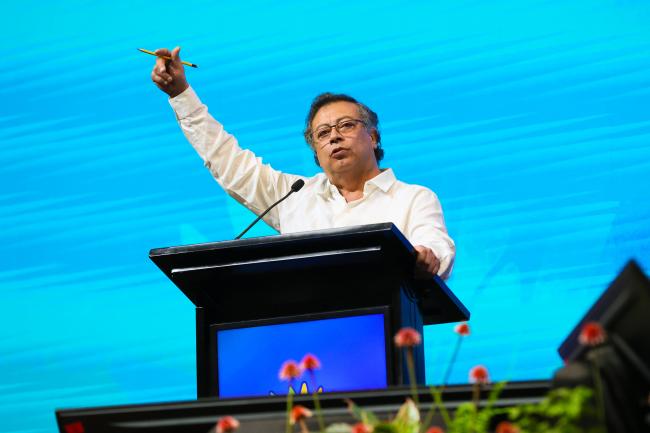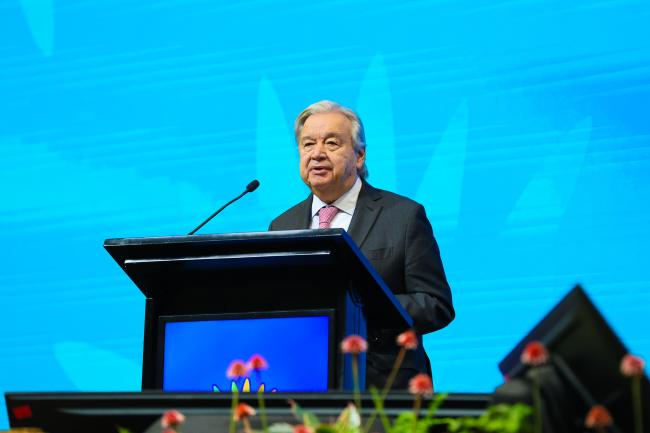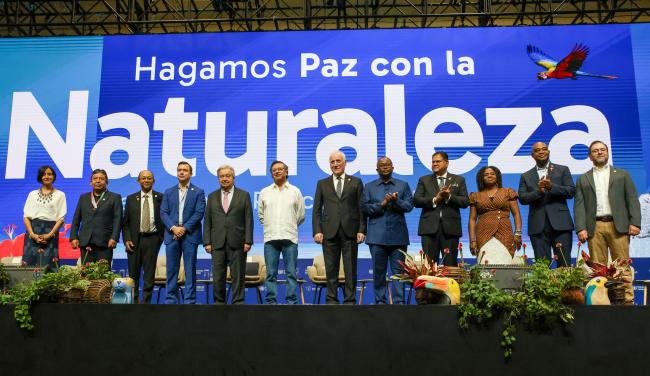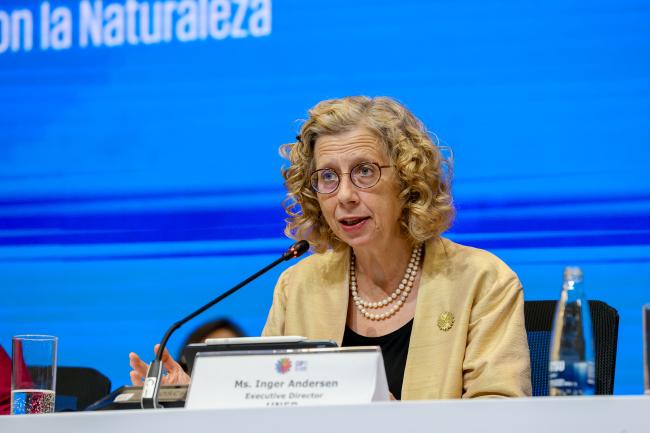“What happens when the forest disappears, when the water dries up in the Andes, when the lungs of humanity stop breathing?” The High-level Segment of the UN Biodiversity Conference opened with a passionate statement by Gustavo Petro, President of Colombia, who stressed that solutions to the crises of biodiversity loss and climate change are inherently political and require global, collective realignment to democratic decision-making.
Want to dig deeper into today's talks? Read the full Earth Negotiations Bulletin daily report.
“Biodiversity is humanity’s ally,” and making peace with nature is the defining task of the 21st century, continued UN Secretary-General António Guterres, underlining the need to turn the bold commitments of the Kunming-Montreal Global Biodiversity Framework (GBF) into action.
Tuesday’s High-level segment featured a series of statements by Heads of State, Ministers, and other high-level representatives, the launch of Colombia’s Initiative “World Coalition for Peace with Nature: A Call for Life,” as well as two ministerial dialogues on GBF implementation and financing.
Speakers drew attention to biodiversity-related initiatives at national and transboundary levels and to efforts to implement the GBF, including through updating their national biodiversity strategies and action plans. Many highlighted their priorities and expectations regarding the meeting’s outcomes, focusing on, among other issues, the need for means of implementation and financial resources; recognition of the contribution of Indigenous Peoples and local communities, including through direct access to funding; fair and equitable benefit-sharing, including from digital sequence information (DSI); and synergies among multilateral environmental agreements.
Text-based negotiations continued in contact groups throughout the day and into the night. The contact group on specialized international access and benefit-sharing instruments reached no agreement on a potential process for recognition of such instruments and decided to call for further intersessional work. The contact group on resource mobilization addressed options for an intersessional process toward establishing a dedicated global instrument for biodiversity finance.
The contact group on scientific and technical needs debated draft decisions regarding the network of regional and subregional technical and scientific cooperation support centers, as well as potential additional assessments for the Intergovernmental Science-Policy Platform on Biodiversity and Ecosystem Services (IPBES) to consider. The contact group on DSI addressed the draft decision and modalities regarding non-monetary benefit-sharing and the review of the multilateral mechanism. On planning, monitoring, reporting, and review, delegates focused on options for governance of the global review and the global report.
With a stocktaking plenary scheduled for Wednesday evening, and negotiations continuing at a slow pace, some were hopeful that the presence of high-level representatives will provide the necessary impetus and momentum for agreement on at least some of the main outstanding items, such as DSI, finance and resource mobilization, and Article 8(j).
To receive free coverage of global environmental events delivered to your inbox, subscribe to the ENB Update newsletter.
All ENB photos are free to use with attribution. For the 2024 UN Biodiversity Conference, please use: Photo by IISD/ENB | Mike Muzurakis
High-level Opening

Sara Sofía Díaz, Colombian youth environmental activist, and COP 16 President Susana Muhamad, Colombia

Steffi Lemke, Federal Minister for the Environment, Nature Conservation, Nuclear Safety and Consumer Protection, Germany
High-level Session

From L-R: Christine Estrada, CBD Secretariat; Mauricio Cabrera Leal, Colombia; and Juan Bello, UN Environment Programme

Astrid Puentes Riaño, UN Special Rapporteur on the human right to a clean, healthy and sustainable environment

Steffi Lemke, Federal Minister for the Environment, Nature Conservation, Nuclear Safety and Consumer Protection, Germany

Trevor Manemahaga, Minister of Environment, Climate Change, Disaster Management and Meteorology, Solomon Islands

